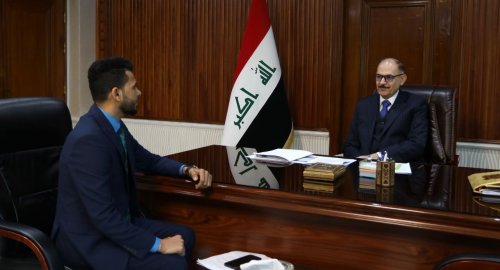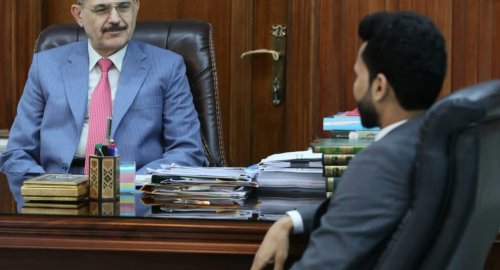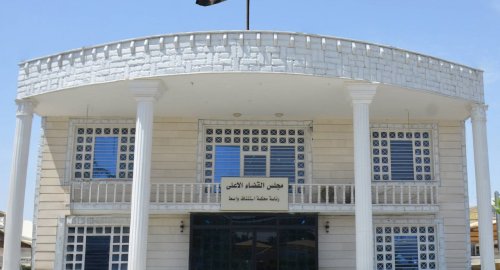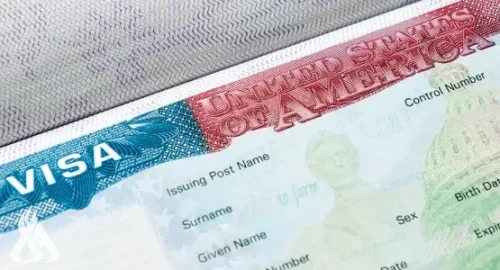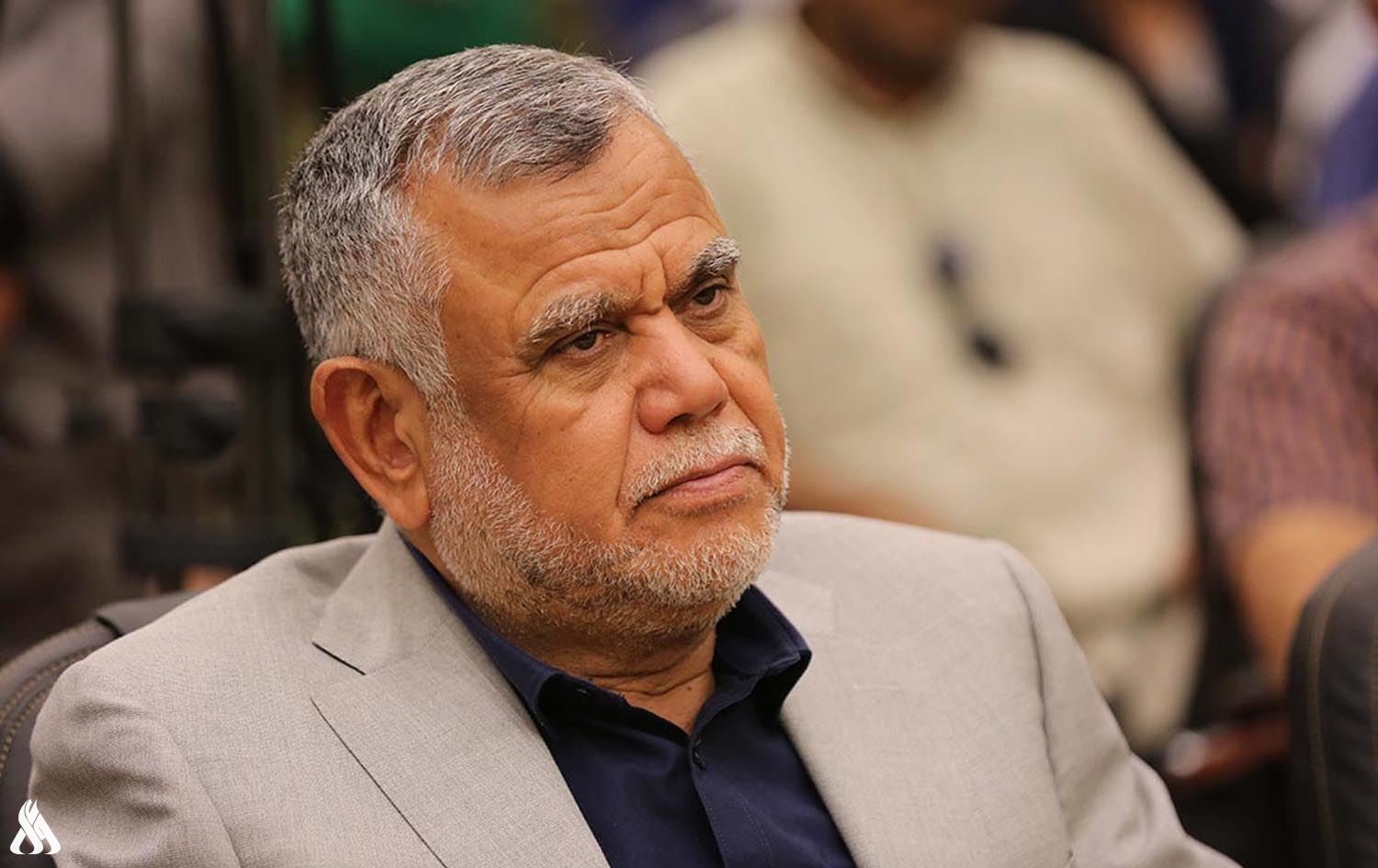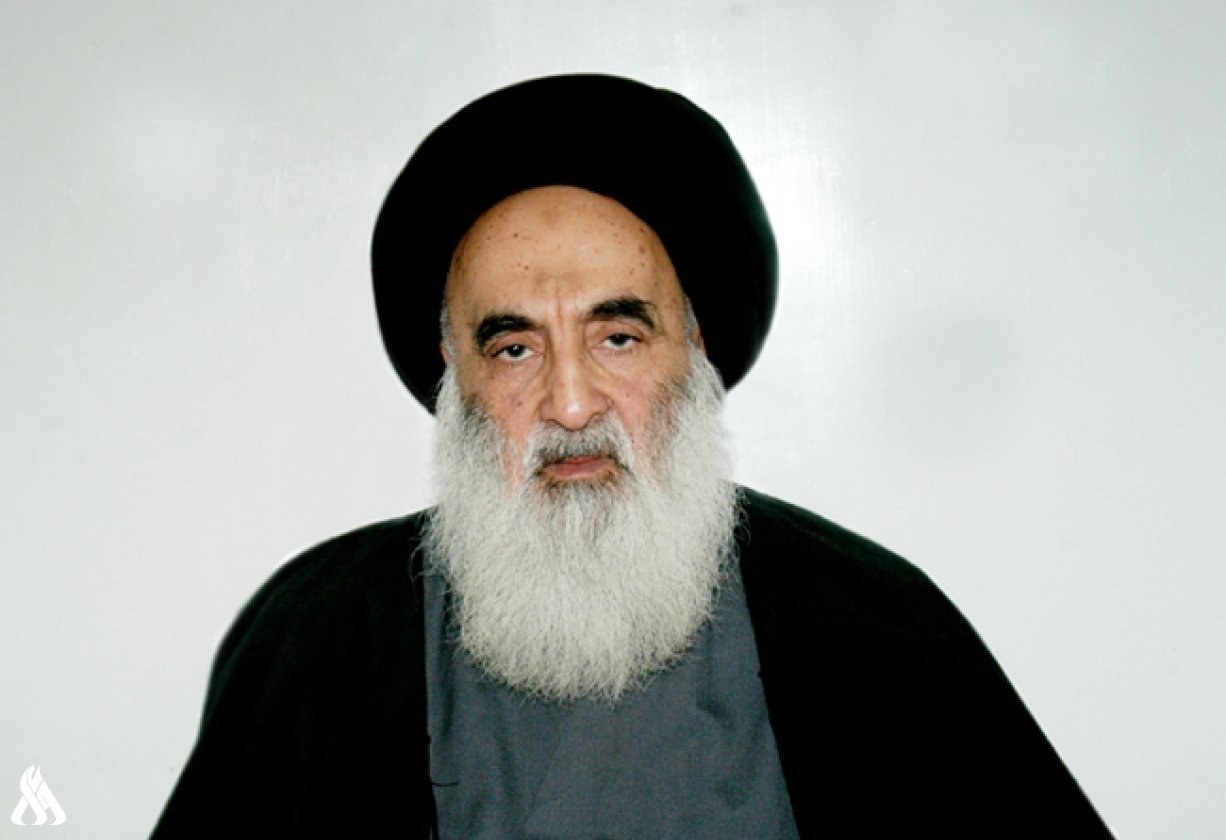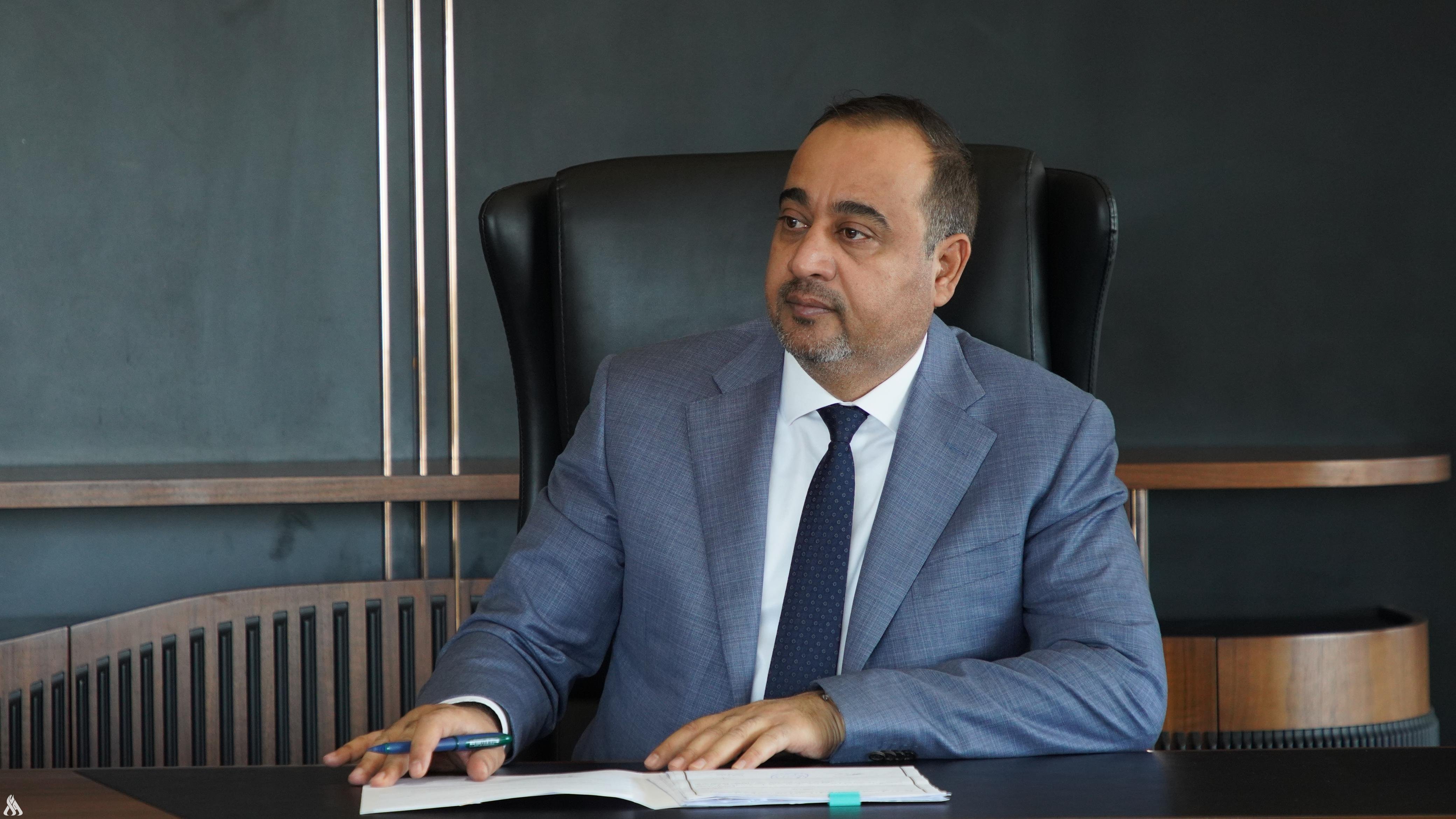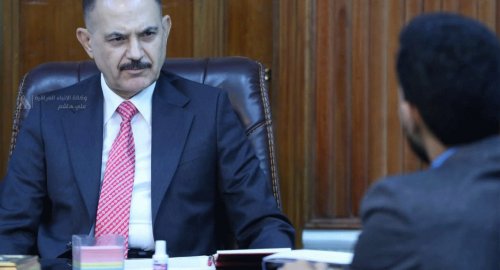
The Federal Court sets 6 foundations on which it bases its decisions

- 21-11-2023, 19:18
Baghdad-INA
Federal Supreme Court identified on Tuesday, 6 basic foundations upon which it bases its decisions, and while it indicated that among them is preserving the independence of the judiciary and not deviating from the path of fair governance in the decision, it stressed that using Parliament in a direction that does not serve the people and the nation is a deviation in the democratic process from its correct path.
Foundations of Federal Court decisions
The President of the Federal Court, Jassem Muhammad Abboud, told the Iraqi News Agency (INA): “The Federal Supreme Court bases the fairness of its decisions on the Iraqi people, and must return to the people to clarify whether those decisions are fair or unjust,” indicating that “the Iraqi judge is whether he is in the court federal or other, it issues its ruling in the name of the people, and does not rule in the name of the interest of a specific party, nationality, or group of society."
He added, "The most important foundations on which we rely in the Iraqi Federal Supreme Court in our decisions are:
1- The supreme interest of the people through preserving the public rights and freedoms and not sacrificing them mentioned in the Iraqi Constitution of 2005 from Article 14 to Article 46, as not preserving those rights and freedoms is not building correct democratic institutions that lead to building a correct democratic parliamentary system.
2- Preserving the unity, integrity, and independence of Iraq and its federal democratic system, based on the provisions of Article 1 of the Iraqi Constitution, which described the system of government in Iraq as a unified democratic, parliamentary republic, and that this Constitution is a guarantor of the unity of Iraq, and based on the provisions of Article 109 of the Iraqi Constitution, which obligated all federal authorities to preserve Iraq’s unity, sovereignty, safety, and federal democratic system.
3- Preserving the independence of the judiciary in accordance with what is stated in Articles 87, 88, 89, 92, and 93 of the Constitution and not allowing the infringement of independence by any external or internal party, and all countries that claim that they have achieved great progress in the democratic system, and that they take into account human rights must take into account the principle of the independence of the judiciary in Iraq.
4-The principles of justice and well-established judicial values of the Iraqi judge shall not be exceeded for the duration of his service in the judiciary, since judges of the Federal Supreme Court of Iraq have a long history in the judiciary, they have a judicial service for very long years that has been entrenched with judicial principles and values that cannot be overstepped when there is sufficient evidence to rule in this direction or so , where no judge in the world can go beyond justice if there is sufficient evidence , going beyond this would be a breach of justice's principles and valid judicial values.
5- Maintaining the correct and proper application of the Constitution and the law in a way that guarantees the interests of the people and national unity, as the people, with all its components and sects, have decided, in accordance with the Constitution of the Republic of Iraq, with their freedom and choice, to unite for themselves, and to fill the system of high human values and ideals with messages from heaven and developments in human science and civilization, the Iraqi Constitution, and that this constitution preserves Iraq’s unity of people, land, and sovereignty, stressing that “the constitution is not the property of a party, entity, or nationality, but rather it is accomplished for the Iraqi people with all its components, in its place is the constitution as a result of a bitter regime through which the Iraqi people made great sacrifices, and the correct and proper application of the Iraqi constitution must be preserved it is one of the most important foundations of the court’s work."
6- Everyone, including judges, through their work, especially since their rulings are issued in the name of the people, must preserve the blood of Iraq’s martyrs and not allow that blood to be exploited to achieve the personal interests of this or that party, since that blood was provided to build Iraq. For all Iraqis (such as the poor, the needy, workers, farmers, students, and members of the security and military services), pointing out that “the martyrs of Iraq who sacrificed their lives for Iraq are from the families of those groups, and from all other groups of Iraqi society, as all Iraqis are Shiites and Sunnis, Arabs and Kurds, who have sacrificed thousands Martyrs, and had it not been for that blood, the Iraqi people would not have reached the state they have reached at the present time, and that the blood of the martyrs must be embodied in the unity of Iraq as stated in the Constitution, and in equality before the law in accordance with what is stated in Article 14 of the Constitution and in the peaceful transfer of power, and in accordance with what is stated in Article Six of the Constitution, considering that the people are the source of powers and their legitimacy in accordance with what is stated in Article 5 of the Constitution, and ensuring the participation of all Iraqis in political life and the exercise of their political rights, including the right to vote, elect, and nominate in accordance with what is stated in Article 20 of the Constitution, which leads to the preservation of public funds and the sanctity of That money will lead to a fair distribution of the country’s wealth to all Iraqi people in accordance with Article 27/First of the Constitution, and will lead to ensuring freedom of expression for all Iraqis in accordance with Article 38 of the Constitution."
He stressed that "all of these achievements, including the Iraqi Constitution of 2005, building democratic institutions, and achieving the interests of the people, would not have been possible without the blood of the Iraqi martyrs therefore, we must preserve that blood and not allow it to be used in incorrect paths or in a way that harms the supreme interest of the Iraqi people and the nation," Pointing out that "the above foundations must be relied upon by the judge in the Federal Supreme Court in his decisions, and those decisions must derive their justice or not from the conviction of the Iraqi people, and not from the conviction of a specific party ."
Constitutional decisions away from interference
He stated that "the court consists of 9 judges representing most of Iraq's governorates from all its components and nationalities, as most of the judges working in the Federal Court were court presidents, and they had a long tenure in the Iraqi judiciary, where very great judicial values and principles were deeply rooted in them, and these values and principles cannot be bypassed at all account of this or that party,” pointing out that “the Federal Court is an independent judicial body, financially and administratively, and carries out its work in accordance with the Constitution and the law, and under circumstances, when it has sufficient and convincing evidence, can it deviate from the seriousness of fair judgment in its decision, whatever the reasons, no Especially since the primary goal of the court is to maintain the correct application of the Constitution in a way that ensures the interests of the people and the nation."
Binding resolutions
He stated that “based on the provisions of Article 94 of the Iraqi Constitution, the decisions of the Federal Court are final and binding on all persons and authorities, and this philosophical decision stems from the powers of the Federal Court contained in Article 93 of the Constitution,” pointing out that “Parliament , and based on the provisions of Article 49/First of The constitution shall consist of a number of members representing the entire Iraqi people, with a ratio of one seat for every 100,000 people, since when the Iraqi people went out in their millions on January 30, 2005 to the ballot boxes to referendum on the constitution, their exit was a great achievement and through them the constitution was legislated."
He stated that "the Iraqi people were inspired by the constitution, and Iraq's martyrs came from Shiites and Sunnis, Arabs, Kurds, and Turkmen, and from among the components of the people the Iraqi people, during their referendum on the constitution, recalled the desecration of the holy cities of the Shaabani uprising, the nationalist oppression in the massacres of Halabja, Barzan, Anfal, and the Faili Kurds, and the tragedies of the Turkmen in Bashir and the suffering of Our people in the western region have been subjected to the liquidation of their leaders, symbols, and sheikhs, the displacement of their competencies, and the drying up of their intellectual sources therefore, under no circumstances can any party act contrary to the Constitution, as it described the decisions of the Federal Court in its Article 94 as being clear and binding, and therefore these rulings must be implemented according to what is stated therein.
Constitutional violation
He stressed that "failing to implement the decisions of the Federal Court, which are final and binding, is a violation of the Constitution," noting that "the decisions of the Federal Court are clear in their meanings and finality, and therefore the Federal Court, when it issues its decision, must be adhered to by all other parties, political and otherwise."
Implementing decisions
He stated that "the Federal Court pronounces its decisions and the other parties must implement the decision, because the Federal Court itself does not implement the decision, but rather the other parties must implement the decision in accordance with what is stated in it."
He stressed that "all the peoples of the world view the legislative authority with sanctity and respect, because of the ability, potential, and powers of this institution that are capable, through and through it, of pushing the country and its people forward, and, on the contrary, leading it backwards," noting that "this institution has been carried in all countries of the world there are many names, including Parliament, a National Assembly, or a House of Representatives, but no matter how many names there are, Parliament remains a leader, guide, legislator, monitor, and control of all the activities of the state and its institutions, as it legislates for it and its citizens, monitors and holds the executive authority accountable, and respects the independence of the judiciary.
Parliament's tasks
He continued, "Using Parliament in a way that does not serve the people and the country is a deviation of the democratic process from its correct path, and thus demolishing the pillars of the democratic system on which the Constitution of the Republic of Iraq focused on building all democratic institutions in light of it in Iraq," stressing "the need for Parliament to bear the sanctity of the tasks that it carries out it shall be carried out, embodying the hopes, aspirations and goals of the Iraqi people, and not using any method that would obstruct the achievement of the goals of this constitutional institution."
S. Korea plans $2 bn emergency aid for auto sector hit by U.S. tariffs
- International
- 08:58
U.S. revokes all visas for South Sudanese citizens
- International
- 08:00
Al-Amiri warns of any war between Iran and the US
- politics
- 25/04/01
ChatGPT temporarily down due to pressure from cartoon trend
- Articles
- 25/03/30
